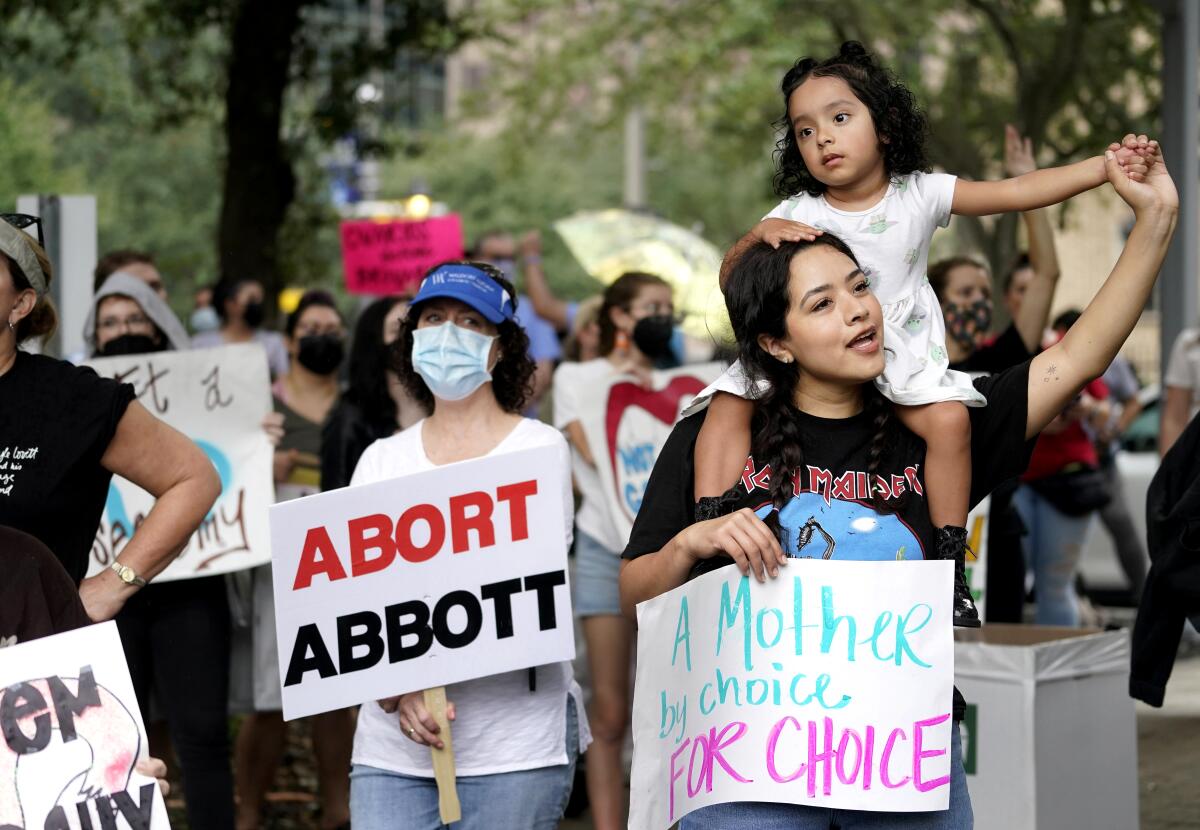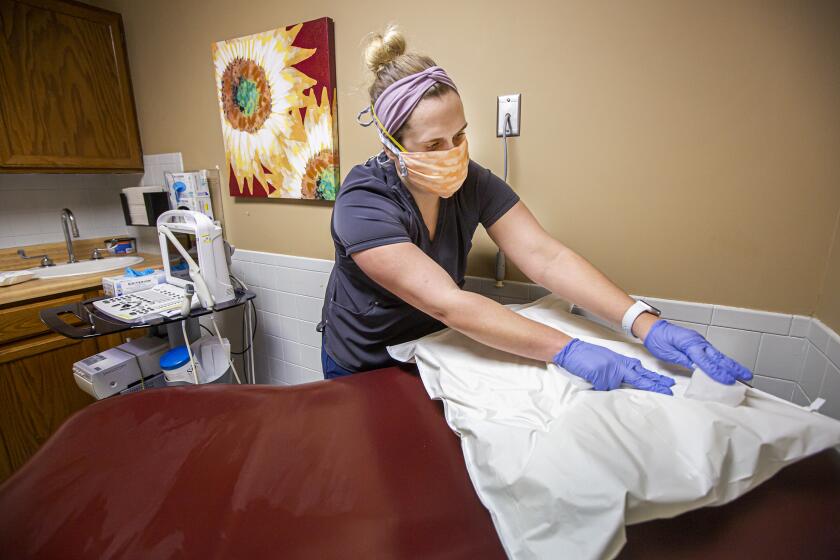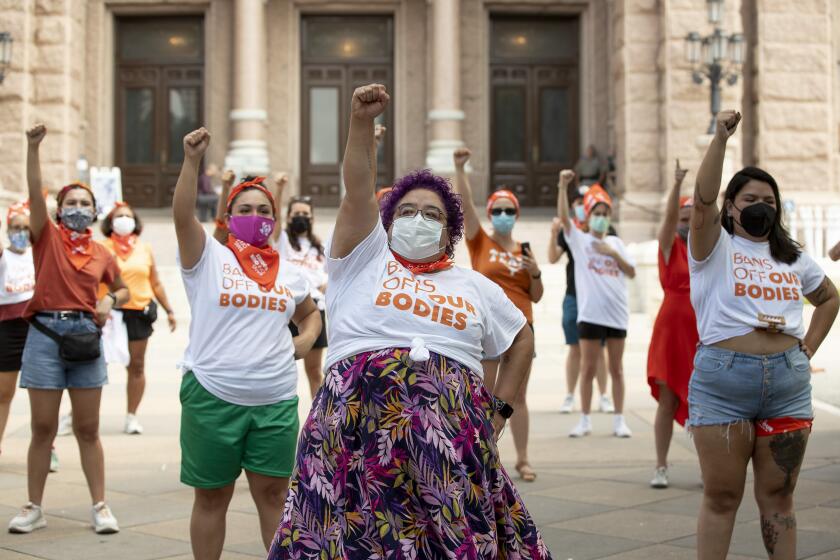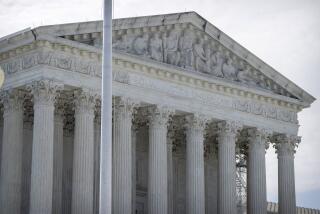Judge orders Texas to suspend new law banning most abortions

AUSTIN, Texas — A federal judge on Wednesday ordered Texas to suspend the most restrictive abortion law in the U.S., which since September has banned most abortions in the nation’s second-most populous state.
The order by U.S. District Judge Robert Pitman is the first legal setback for the Texas law known as Senate Bill 8, which until now had withstood a wave of early challenges. In the weeks since the restrictions took effect, Texas abortion providers say the impact has been “exactly what we feared.”
In a 113-page opinion, Pitman took Texas to task over the law, saying Republican lawmakers had “contrived an unprecedented and transparent statutory scheme” by leaving enforcement solely in the hands of private citizens, who are entitled to collect $10,000 in damages if they bring successful lawsuits against abortion providers who violate the restrictions.
The law, signed by Republican Gov. Greg Abbott in May, prohibits abortions once cardiac activity is detected, which is usually around six weeks, before most women even know they are pregnant.
“From the moment S.B. 8 went into effect, women have been unlawfully prevented from exercising control over their lives in ways that are protected by the Constitution,” wrote Pitman, who was appointed to the bench by President Obama.
“That other courts may find a way to avoid this conclusion is theirs to decide; this Court will not sanction one more day of this offensive deprivation of such an important right.”
But even with the law on hold, abortion services in Texas may not instantly resume because doctors still fear that they could be sued without a more permanent legal decision.
Texas officials are likely to seek a swift reversal from the 5th U.S. Circuit Court of Appeals, which previously allowed the restrictions to take effect.
The lawsuit was brought by the Biden administration, which has said the restrictions were enacted in defiance of the U.S. Constitution.
The Biden administration argued that Texas has waged an attack on a woman’s constitutional right to abortion. The GOP-engineered restrictions took effect Sept. 1.
“A state may not ban abortions at six weeks. Texas knew this, but it wanted a six-week ban anyway, so the state resorted to an unprecedented scheme of vigilante justice that was designed to scare abortion providers and others who might help women exercise their constitutional rights,” Justice Department attorney Brian Netter told the federal court Friday.
People desperate to end their pregnancies travel hundreds of miles to Trust Women Wichita. One tells her story. We also hear from staff and antiabortion activists.
Abortion providers say their fears have become reality in the short time the law has been in effect. Planned Parenthood says the number of patients from Texas at its clinics in the state decreased by nearly 80% in the two weeks after the law took effect.
Some providers have said that Texas clinics are now in danger of closing while neighboring states struggle to keep up with a surge of patients who must drive hundreds of miles. Other women, they say, are being forced to carry pregnancies to term.
Other states, mostly in the South, have passed similar laws that ban abortion within the early weeks of pregnancy, all of which judges have blocked. But Texas’ version has so far outmaneuvered the courts because it leaves enforcement to private citizens to file suits, not prosecutors, which critics say amounts to a bounty.
“This is not some kind of vigilante scheme,” said Will Thompson, defending the law for the Texas attorney general’s office. “This is a scheme that uses the normal, lawful process of justice in Texas.”
The Texas law is just one that has set up the biggest test of abortion rights in the U.S. in decades, and it is part of a broader push by Republicans nationwide to impose new restrictions on abortion.
On Monday, the U.S. Supreme Court begins a new term, which in December will include arguments in Mississippi’s bid to overturn 1973’s landmark Roe vs. Wade decision guaranteeing a woman’s right to an abortion.
A San Antonio doctor who said he performed an abortion in defiance a new Texas law has been sued.
Last month, the court did not rule on the constitutionality of the Texas law in allowing it to remain in place. But abortion providers took that 5-4 vote as an ominous sign about where the court might be heading on abortion after its conservative majority was fortified with three appointees of former President Trump.
Ahead of the new Supreme Court term, Planned Parenthood on Friday released a report saying that if Roe vs. Wade were overturned, 26 states are primed to ban abortion. This year alone, nearly 600 abortion restrictions have been introduced in statehouses nationwide, with more than 90 becoming law, according to Planned Parenthood.
Texas officials argued in court filings last week that even if the law were put on hold temporarily, providers could still face the threat of litigation over violations that might occur in the time before a permanent ruling.
At least one Texas abortion provider has admitted to violating the law and been sued — but not by abortion opponents. Former attorneys in Illinois and Arkansas say they sued a San Antonio doctor in hopes of getting a judge to invalidate the law.
More to Read
Sign up for Essential California
The most important California stories and recommendations in your inbox every morning.
You may occasionally receive promotional content from the Los Angeles Times.












